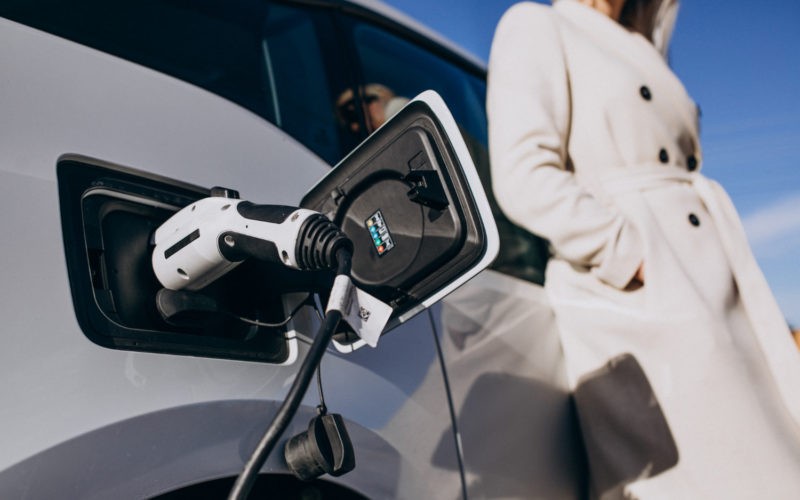With a pressing global agenda on environmental sustainability and green technology, electric vehicles (EVs) are increasingly becoming popular, especially among forward-thinking businesses. One of the more prominent examples is the electric Mazda MX-30. This new offering from Mazda demonstrates that electric cars are no longer an oddity but a tangible, practical reality for businesses across the globe.
The Rise of Electric Vehicles
This transition from fossil fuel-based vehicles to electric ones is not merely due to environmental concerns, however. Beyond contributing to the fight against climate change, EVs offer significant financial advantages that are driving businesses to make the switch. Let’s delve deeper into these financial benefits.
Lower Operating Costs
One of the most striking benefits of EVs is their low operating costs. Traditional petrol or diesel vehicles have numerous moving parts in their engines and often require frequent servicing and part replacement. The electric motor in a vehicle like the Mazda MX-30, on the other hand, has far fewer moving parts and requires less regular maintenance, translating to reduced costs for businesses.
Moreover, the cost of electricity to charge an EV is significantly less than the cost of petrol or diesel. Besides these direct cost benefits, there are indirect financial gains linked with EV adoption, especially when businesses take a proactive role in supporting this transition. For instance, commercial EV charging station installation can be a worthwhile investment for companies with large fleets or businesses where employees drive EVs. This not only provides an on-site charging solution, reducing downtime associated with off-site charging, but it also signals a commitment to sustainable practices. This forward-thinking approach can enhance a company’s brand image, leading to potential increased customer loyalty and even attracting new clients who value eco-friendly initiatives. In the UK, this can amount to substantial savings over the course of a year, especially for businesses that have fleet vehicles or those that offer company cars.
Government Incentives
The UK government offers significant incentives for businesses that incorporate EVs into their operations. This includes the plug-in car grant, which can reduce the cost of brand-new low-emission vehicles. As a result, models like the Tesla Model 3 can be purchased at a discounted price, providing immediate financial benefits for businesses.
Moreover, companies that invest in charging infrastructure for their fleet or their employees also stand to gain from government grants. The Workplace Charging Scheme (WCS), for instance, is a voucher-based scheme that provides support towards the upfront costs of the purchase and installation of EV charge points.
Enhanced Company Image and Customer Appeal
In the current era, where customers are more environmentally conscious, a business can significantly boost its image by incorporating EVs. The positive publicity associated with using electric cars, particularly those that are popular and recognized for their environmental credentials, can drive customer loyalty and potentially increase sales.
Reduced Taxes
Company cars in the UK are subjected to Benefit-in-Kind (BIK) tax. The rates of this tax are directly linked to the amount of CO2 the vehicle emits. For the 2023/24 tax year, fully electric cars have a BIK rate of just 1%, compared to rates for petrol and diesel cars, which can go up to 37%. This significant reduction in BIK can result in substantial savings for businesses.
Additionally, zero-emission vehicles have a 100% first-year capital allowance. This means businesses can deduct the full cost of the electric car from their pre-tax profits in the first year, further reducing their tax bill.
Charging Infrastructure Cost Savings
Another financial benefit of electric cars for businesses lies in the long-term cost savings associated with charging infrastructure. While investing in charging stations may seem like an initial expense, businesses can save significantly on fuel costs in the long run. With their own charging infrastructure, businesses can offer free or discounted charging to employees and customers, incentivizing the use of electric vehicles.
Furthermore, businesses can take advantage of off-peak electricity rates to charge their electric vehicle fleet overnight, as demonstrated by innovative companies like Fortescue Elysia. By strategically managing the charging schedule, businesses can minimize the impact on their electricity bills and take advantage of lower electricity rates during non-peak hours. This intelligent charging management can lead to substantial cost savings over time. In the same vein, businesses looking to further optimize their fleet might consider options to “junk my car” for older, less efficient vehicles, thereby embracing more sustainable and cost-effective transportation solutions.
Reduced Maintenance and Repair Costs
Electric vehicles, such as the Mazda MX-30 and Tesla Model 3, have fewer mechanical components compared to their combustion engine counterparts. This translates to reduced maintenance and repair costs for businesses. Electric cars do not require oil changes, belt replacements, or exhaust system repairs, resulting in fewer visits to the mechanic and lower overall maintenance expenses.
Additionally, regenerative braking systems in electric cars help prolong the lifespan of brake pads. The regenerative braking technology captures and stores energy that is typically lost during braking in traditional vehicles. This feature reduces wear and tear on the brake pads, leading to less frequent replacements and further cost savings for businesses.
Conclusion: A Sound Business Decision
In conclusion, after a thorough analysis of the financial benefits of electric cars for businesses, it is evident that models like the Mazda MX-30, as highlighted in the Mazda MX-30 Review, present a compelling case for companies to make the switch to electric vehicles. From lower operating costs and government incentives to reduced taxes and enhanced company image, the Mazda MX-30, along with other electric vehicles such as the Tesla Model 3, offers a range of advantages that can have a positive impact on the financial health of businesses. By embracing electric cars, businesses not only save money but also contribute to a more sustainable and eco-friendly future.












